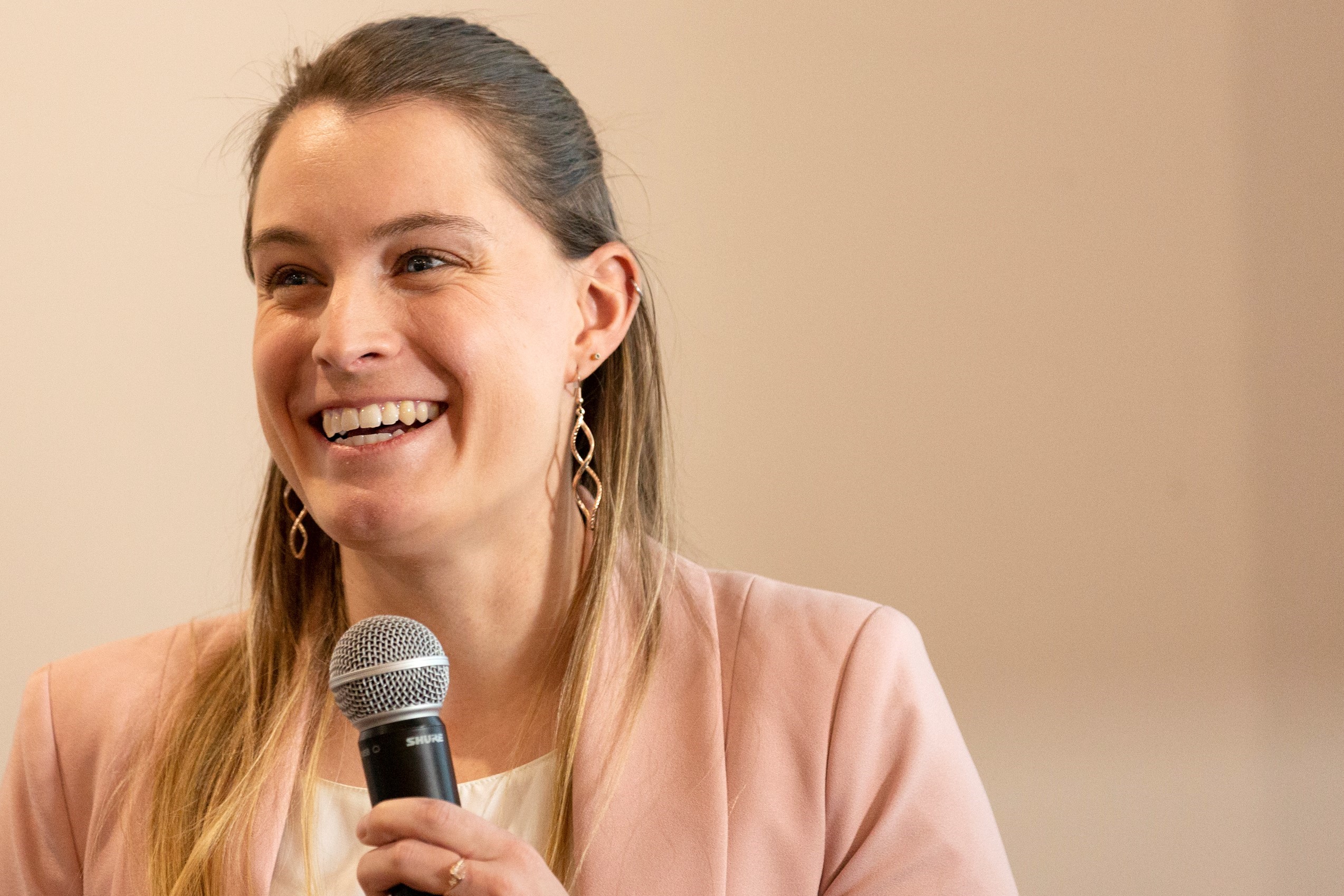
Recognising the great value of her science degrees from Flinders University has compelled Dr Melanie Fuller (BSc(Hons) ’16, PhD(Chem) ’20) to stand tall as an advocate for Science, Technology, Engineering, Mathematics and Medicine (STEMM) studies – particularly to help inspire young women pursue a career in science.
“When I was a high school student, I couldn’t see many significant female scientists to look up to,” she says. “There’s a very big need for younger people to have role models, so they can see themselves potentially doing the same scientific roles.”
Dr Fuller is now the acting Director of Workforce Capability and Talent at Defence Science and Technology Group (DSTG), a role that looks after STEM Outreach, and oversees the transformation of the workplace culture within DSTG. It underlines her interest in building greater gender equity in science by breaking down gender stereotypes.
She has delivered many inspiring talks at Women in STEMM events across South Australia and has driven DSTG’s Science in Australia Gender Equity Implementation plan.
“I’ve found that by going into schools, I can stand as an example – to tell the students that they can do this work in science too, that it’s definitely within their reach.”
Dr Fuller’s scientific studies have followed several different paths. Admitting that she had no clear idea of career prospects when she began a general science degree, she became intrigued and inspired by a Flinders presentation about nanotechnology.
“I wanted to learn more about this up-and-coming area of science, and Flinders was the only South Australian university that offered nanotechnology as a degree,” she says. “It proved a very wise choice to specialise in this important new niche area of science.”
She did honours studies – “I saw great value in doing my own research because you get the opportunity to work on something completely new and unknown” – and then went further by completing a PhD, to focus on her nanoscience specialisation. “I found that the more study opportunities I engaged in, the broader my ideas became about how I could apply science to a career.”
Through her scientific studies, Dr Fuller has learned that inspiration comes from unlikely places, often unlocked by unexpected opportunities. As a Flinders undergraduate, her third-year Polymer Science class visited a local car parts manufacturer, making components using polymers”.
“Seeing how science met manufacturing was really eye-opening, where the theoretical concepts meet with a practical and tangible application,” she said.
As part of her PhD, Dr Fuller spent three months in Japan, working with other researchers and ultimately learning a technique for making polymer bandages that she brought back to her research group at Flinders.
“My Flinders degree taught me to think critically and to look outside the box for more innovative solutions – this has helped me enormously, especially in leading change within an organisation.” She recently developed and established the innovative NAVIGATE Program, a novel mid-career program which attracted more than 800 applications with a focus on diversity.
While studying at Flinders, she also grasped the opportunity to serve as outreach officer for the student science club and became a keen member in the STEMM: Women Branching Out group, which served as a valuable forerunner to her setting up an Implementation Team made up of STEM professionals and corporate staff to meet the DSTG’s gender equity goals.
Dr Fuller’s work has led to her receiving many accolades, including an augural Flinders University Alumni Early Career Researcher Award in 2020 for her significant contribution to the scientific community through research and advocacy, along with recently being nominated as a Finalist for the Women in Defence Awards in the People and Culture category. She also was awarded the SA Kelly Services Young Scientist of the Year Award (2019), the Prince of Wales Award (2018) and was a finalist in the SA Young Achiever Awards (2020).
“I’ve tried so many things through my studies, and that has led to opportunities,” says Dr Fuller. “Sometimes they don’t come off, but that’s OK. I’ve learned something valuable from everything I’ve attempted – and that’s the way I’ve been able to progress in my career.”

